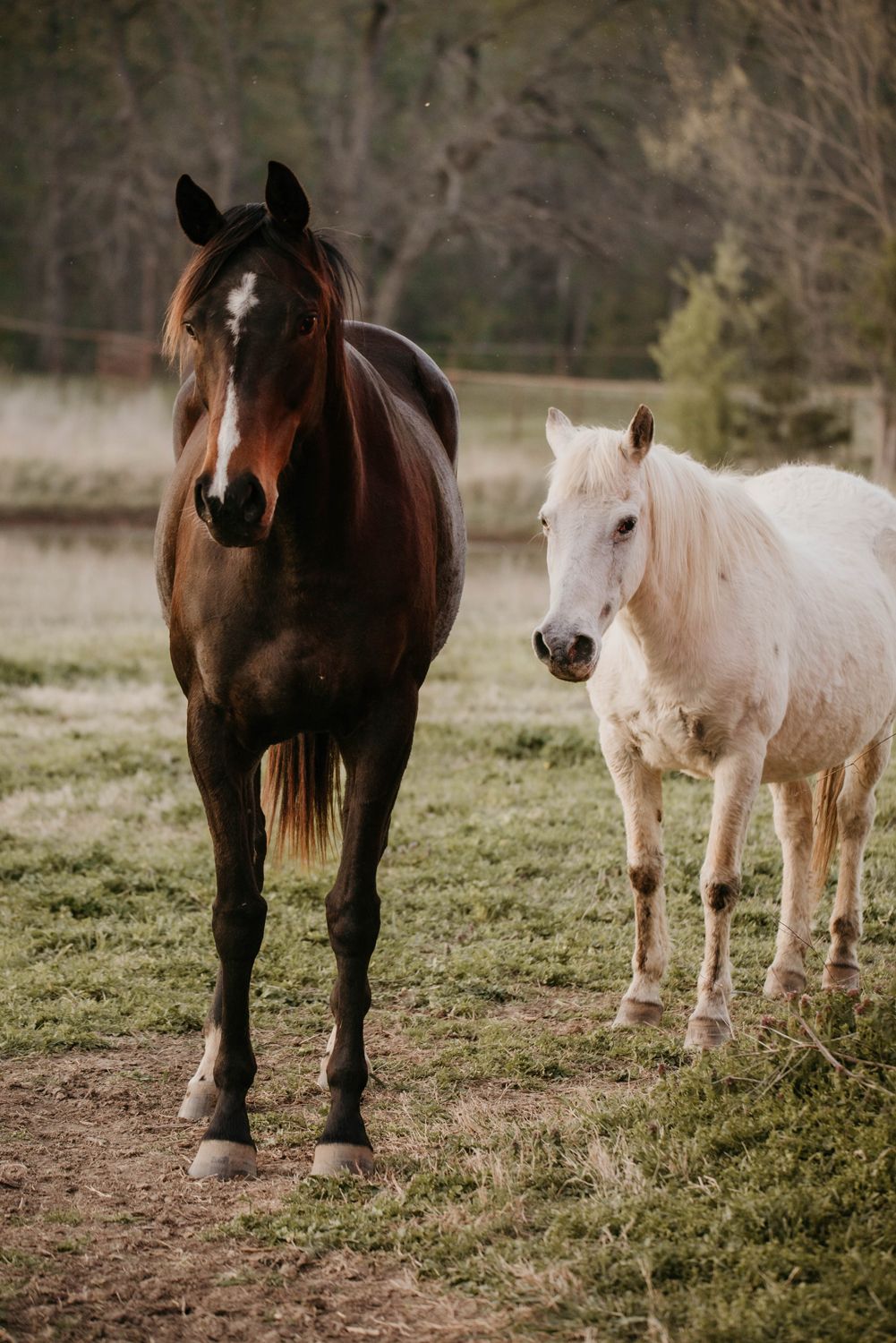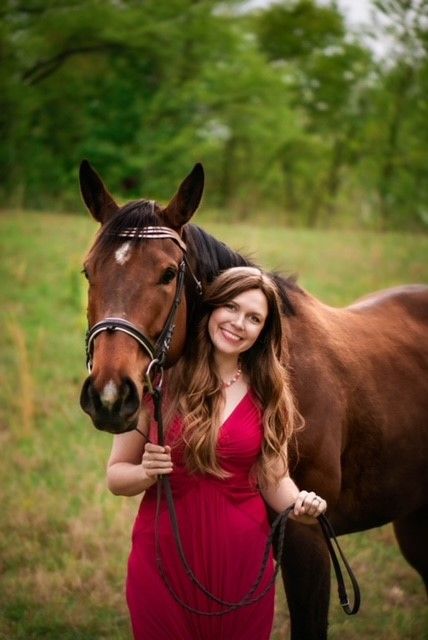Enjoying The Golden Years
Senior horse care considerations


When I turned 3, my parents gifted me every little girl’s dream—a pony!I named her Sparkler.
Sparkler today is the matriarch of our farm at the spry age of 31. As our horses and ponies reach their golden years, how can we ensure their best health, and what are nutrition and health considerations to keep at the forefront as time ticks by?
Nutrition
Maintaining a healthy weight, especially through the winter months ahead, is important, and it can become all the more difficult as horses age. Ensure your senior horse is kept on a 12-to-16% protein, high-quality fiber senior feed and receiving adequate forage.
For senior horses, especially those with poor dental conditions, forage and hay intake can become more trying. “If you have horses who are not able to eat hay, then soaked forage pellets are definitely an option,” says Jyme Nichols, PhD, director of nutrition at Stride Animal Health. “Forage pellets, such as Timothy hay pellets, alfalfa hay pellets, or even beet pulp shreds, will have the similar benefits as long-stem hay forage.”
And, for those struggling in the weight gain department?
“For horses who are underweight, it is important to try to improve their body condition, which will support their thermoregulation [the ability to maintain their own core body temperature] and overall health. In addition to increasing their total hay intake, we recommend adding a high-quality protein and energy supplement to help support healthy weight gain,” said Tony Hawkins, DVM, technical service veterinarian at Valley Vet Supply.
Health
Equine arthritis, Cushing’s, heightened parasite risk and dental maintenance – these are just a few of the top health concerns as horses age.
“Arthritis in horses is a chronic cycle of progressively worsening degeneration of joint cartilage, loss of synovial fluid, pain, and inflammation,” said Dr. Hawkins. “It is common in horses and most often affects the stifle, hock or fetlock. Unfortunately, there is no cure for arthritis, but the damage to the joint can be slowed by injections or oral supplements to promote joint cartilage health and lubrication. Long-term management will likely require pain control through the form of prescription medications or pain relief supplements.”
Signs of arthritis can include lameness or limping, warm or painful, swollen joints, reluctance or difficulty to move, and stiffness in the joints.
Pituitary Pars Intermedia Dysfunction (PPID), also known as equine Cushing’s disease, impacts some 21% of horses over 15 years of age. This progressive neurodegenerative disorder in horses causes their pituitary gland, which utilizes hormones to control body functions, to work overtime, leading to a range of symptoms that can affect a horse’s quality of life.
“Cushing’s itself typically causes weight loss,” says Dr. Hawkins. “One of the more prominent symptoms would be the shaggy hair coat – as they’re unable to shed their coat out appropriately – immune suppression, muscle wasting, weight loss, frequent urination and increased water intake. It also predisposes them to laminitis, and there typically are some secondary issues with insulin and glucose regulation.”
While the condition is most well-known for its incidence in seniors, horses as young as 5 years old have been diagnosed. Experts recommend that horse owners perform frequent health checks to identify early signs of PPID. Catching PPID early on can have a profound impact on how the horse responds to treatment before other signs appear.
Parasite control becomes all the more important for senior horses, as a high parasite burden robs horses of nutrition and health, attributing to weight loss. “Many senior horses become high shedders as they age, which is expected due to diminishing immunity,” Dr. Hawkins said. ”It’s ideal to treat them as you would a normal adult horse – perform a yearly fecal egg count (FEC) and based off of that, you may be deworming them two to four times per year.”
Dental care is always of utmost importance and especially so, as horses grow long in the tooth. After horses reach 20 years old, the American Association of Equine Practitioners (AAEP) recommends they receive twice-annual dental exams and floats. “This will keep his nipping and grinding surfaces in good working order. It also gives the veterinarian a chance to troubleshoot for broken or lost teeth, and check for tongue, gum or other problems,” outlines the AAEP article, Older Horse: Special Care & Nutrition, which serves as an excellent resource for those with senior equids.
Keep these considerations in mind for healthier, happier golden years for your senior horse.
About the author
Valley Vet Supply content manager, Aimee Elyse Robinson, draws from her lifelong experience with horses, coupled with the veterinary wisdom bestowed upon her from her years working in animal health. She and her husband live on an Oklahoma ranchette that’s also home to off-track Thoroughbreds, Appaloosas, and rescue and foster dogs. A co-recipient of the 2022 AHP Equine Media NextGen Award.
Tags:Horse Sense

Acreage Life is part of the Catalyst Communications Network publication family.
















